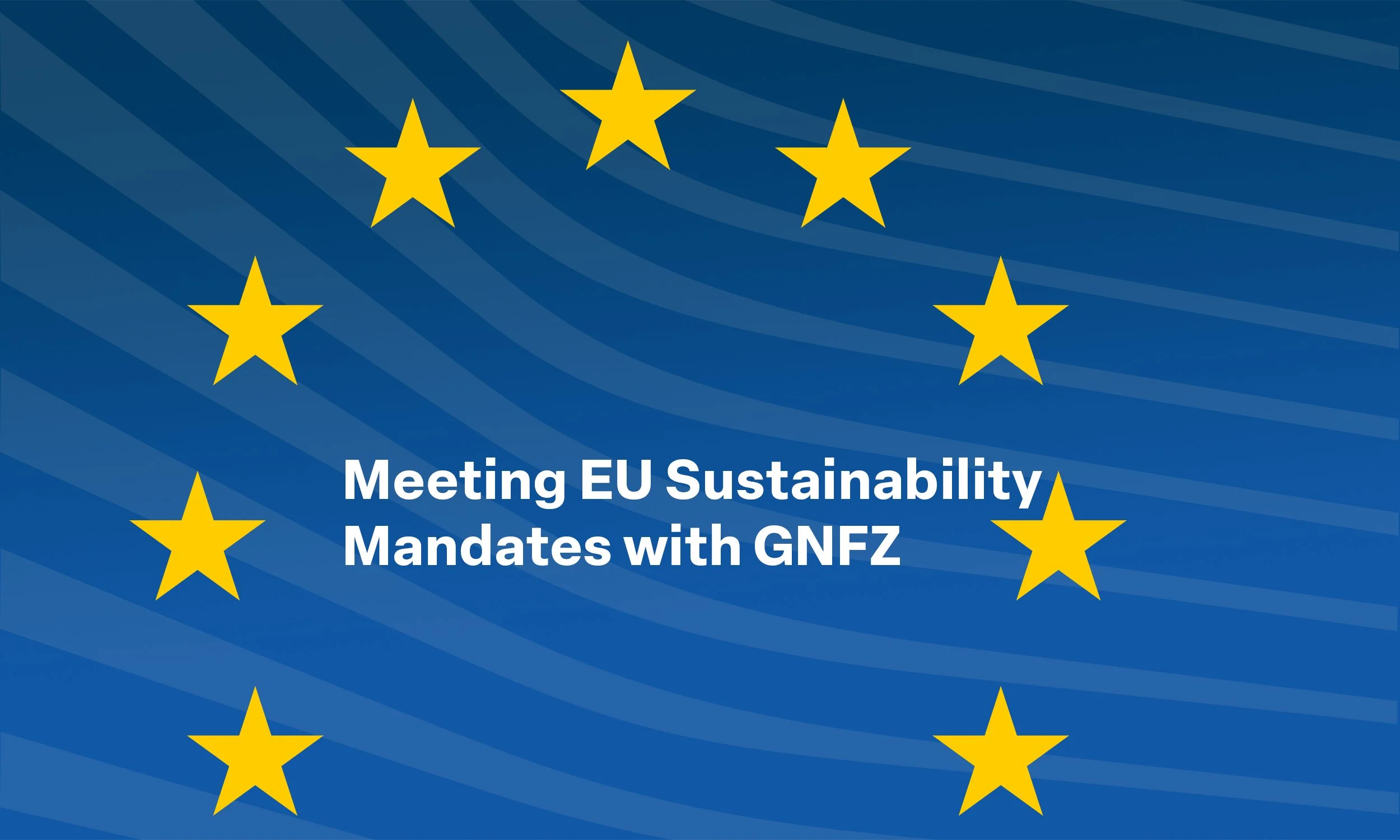From Burden to Advantage: Navigating the EU Omnibus Reforms with Net Zero Certification
In February 2025, the European Commission introduced the Omnibus Package, a sweeping legislative reform aimed at simplifying sustainability-related regulations across the EU. Central to this package are amendments to the Corporate Sustainability Reporting Directive (CSRD) and the Corporate Sustainability Due Diligence Directive (CSDDD). These changes reflect the EU’s commitment to reducing administrative burdens while maintaining its climate and sustainability goals.
Simultaneously, the Global Network for Zero (GNFZ) has emerged as a key enabler for businesses seeking to align with these evolving regulations. Through its net zero certifications for buildings, portfolios and businesses — covering energy, emissions, water, and waste — GNFZ offers a structured, auditable pathway for companies to demonstrate sustainability performance and regulatory compliance.
This article explores the key propositions of the CSRD Omnibus, the concept of double materiality, and how GNFZ’s net zero certifications can support exporters, importers, and manufacturers in meeting EU sustainability mandates.
Key Propositions of the CSRD Omnibus 2025
Scope Reduction and Simplification
The Omnibus Package significantly narrows the scope of CSRD, with only companies with more than 1,000 employees and either €50M+ turnover or €25M+ in assets now being required to report. This change excludes nearly 80% of previously in-scope companies, reducing compliance costs by an estimated €4.4 billion annually.
Voluntary SME Reporting Standard
To protect SMEs from excessive data requests, a voluntary reporting framework based on EFRAG’s SME standard will be introduced. This acts as a shield for smaller firms in the value chain, limiting what larger companies can demand.
Simplified ESRS and Assurance Requirements
The European Sustainability Reporting Standards (ESRS) will be revised to reduce data points and prioritize quantitative over qualitative disclosures. Additionally, the requirement for sector-specific standards is dropped, and assurance remains at limited level, avoiding the costlier “reasonable assurance.”
Postponement of Reporting Deadlines
The “Stop the Clock” directive delays CSRD reporting by two years for companies originally scheduled to report in 2026 or 2027.
Double Materiality: The Cornerstone of CSRD
“Double materiality” is a defining feature of CSRD and remains untouched by the Omnibus reforms. It requires companies to assess and report on:
Financial Materiality: How sustainability issues affect the company’s financial performance.
Impact Materiality: How the company’s operations affect society and the environment.
This dual lens ensures transparency in both risk exposure and external impact, making sustainability reporting more holistic and actionable.
GNFZ’s Net Zero Certification: Enabling Compliance
GNFZ’s Net Zero Certification platform is designed to help companies meet both dimensions of double materiality through structured, third-party verified data.
Categories of Certification
GNFZ offers certification across four key sustainability domains:
Energy: Ensuring buildings and operations generate more energy than they consume.
Emissions: Tracking and reducing Scope 1, 2, and 3 emissions.
Water: Promoting water conservation and reuse.
Waste: Minimizing waste generation and improving recycling and disposal practices.
Support for Impact Materiality
GNFZ certification provides:
Auditable data on emissions, energy use, water and waste.
Evidence of climate mitigation efforts, directly supporting CSRD’s impact materiality requirements.
Alignment with global standards like GHG Protocol, SBTi, and ISO 14068.
Support for Financial Materiality
By implementing net zero strategies, companies can:
Mitigate regulatory risks (e.g., carbon taxes, CBAM).
Enhance resilience against climate-related disruptions.
Improve investor confidence and access to green financing.
Streamlined Reporting
GNFZ’s platform offers:
Pre-validated data for CSRD disclosures.
Tools for Scope 3 emissions tracking, supplier engagement, and offsetting.
Integration with digital reporting systems to reduce administrative burden.
Strategic Implications for Businesses
For exporters and importers, GNFZ certification helps meet CBAM requirements by quantifying embedded emissions in products. Plus, certified sustainability credentials improve access to EU markets and reduce border adjustment risks.
For manufacturers, net zero strategies often lead to cost savings in energy, water, and waste management. Certification also enhances ESG credibility, supporting customer and investor trust.
While exempt from mandatory CSRD reporting, SMEs can use GNFZ certification to respond to value chain requests from larger firms and prepare for future regulation, all while differentiating themselves in competitive markets.
Summary
The EU’s 2025 Omnibus reforms mark a significant recalibration of sustainability regulations, particularly through the CSRD and CSDDD. While the scope and timelines have been relaxed to reduce burdens on businesses, the foundational principles — especially double materiality —remain central.
For companies operating in or trading with the EU, GNFZ’s net zero certifications offer a strategic advantage. They provide structured, third-party verified data across energy, emissions, water, and waste, enabling businesses to:
Demonstrate compliance with CSRD and CBAM.
Address both financial and impact materiality.
Streamline sustainability reporting.
Build resilience and investor confidence.
In a landscape where sustainability is both a regulatory requirement and a competitive differentiator, proactive certification and reporting are no longer optional — they are essential. The best time for affected companies — and those SMEs who wish to demonstrate market leadership — to start their accounting and reporting journey is now. The GNFZ team stands ready to help.

